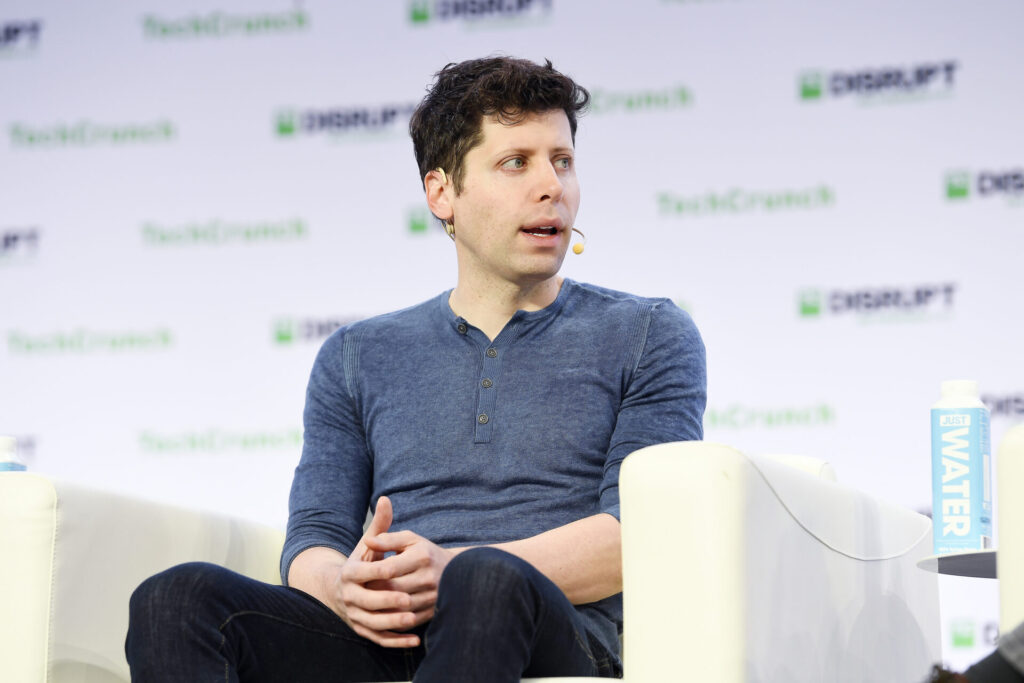It’s been a roller coaster of a weekend in the tech world. Last Friday, the board of OpenAI—a leader in generative artificial intelligence technology—fired the organization’s founder and possibly most recognizable face, Sam Altman. Although there were rumors that Altman, who had been OpenAI’s CEO since 2019, might be rehired, by Monday those rumors were laid to rest as Emmett Shear, formerly of Twitch, took on the role of interim CEO—the second person to do so since Friday. By the start of the work week, Altman, along with OpenAI cofounder Greg Brockman, who was also ousted, had already landed at Microsoft to lead a new AI team there.
It’s unclear what led to Altman’s sudden removal, but a blog post on OpenAI’s website points to transparency. “Mr. Altman’s departure follows a deliberative review process by the board, which concluded that he was not consistently candid in his communications with the board, hindering its ability to exercise its responsibilities. The board no longer has confidence in his ability to continue leading OpenAI.”
Altman became a household name after the release of ChatGPT last November, a time when, according to an Atlantic article, an already forming rift between two camps with different ideas of how to run OpenAI became starkly evident. “Altman’s dismissal by OpenAI’s board on Friday was the culmination of a power struggle between the company’s two ideological extremes—one group born from Silicon Valley techno-optimism, energized by rapid commercialization; the other steeped in fears that AI represents an existential risk to humanity and must be controlled with extreme caution,” Karen Hao and Charlie Warzel write in the piece.
These sentiments were echoed in an article in The New York Times, that reported another OpenAI founder and board member Ilya Sutskever “was said to be growing alarmed that the company’s technology could pose a significant risk, and that Mr. Altman was not paying close enough attention to the potential harms.” OpenAI has an unusual governance structure. It was founded as a nonprofit with a mission to make sure that its artificial intelligence never posed a threat to humanity, but later was restructured, creating a for-profit arm that took in billions of dollars in investments from Microsoft and others. Even so, the nonprofit board controlled the company and retained the mandate for safe AI that benefitted humanity.
Just in May, Altman, Brockman, and Sutskever had released a blog post advocating for governance around superintelligence, AI systems that will surpass human capabilities and intelligence. The idea is not currently grounded in research.
On Monday, Sutskever tweeted “I deeply regret my participation in the board’s actions. I never intended to harm OpenAI. I love everything we’ve built together and I will do everything I can to reunite the company.” He, along with more than 500 OpenAI employees, threatened to leave the company and join Altman in his new venture at Microsoft unless the board resigned.
On Friday, shares in Microsoft (OpenAI’s largest stakeholder) fell 1.7 percent after the firing of Altman. The software giant’s shares rose 2.1 percent, to an all-time high, on Monday after hiring Altman.
Given the speed with which things have been moving, it’s unclear who will land where in this latest game of musical tech and share value chairs. What is relatively clear, however, is perhaps instead of hysteria over individuals, it’d do everyone best to focus on responsible research and deployment of artificial intelligence technology, ensuring minimal harm to workers, the environment, and society.
“A lot of people who went crazy over the weekend for OpenAI’s governance debacle fail to realize that the recent progress in AI is neither made by one company nor by one person. Instead of wasting hours following the OpenAI shenanigans blow by blow, go rewatch the Imitation Game, to get inspired by the true hero scientists of our field!” tweeted Nasrin Mostafazadeh, AI scientist and co-founder at Verneek, an AI startup, on X.
- Adenman
-

 1
1



Recommended Comments
There are no comments to display.
Join the conversation
You can post now and register later. If you have an account, sign in now to post with your account.
Note: Your post will require moderator approval before it will be visible.